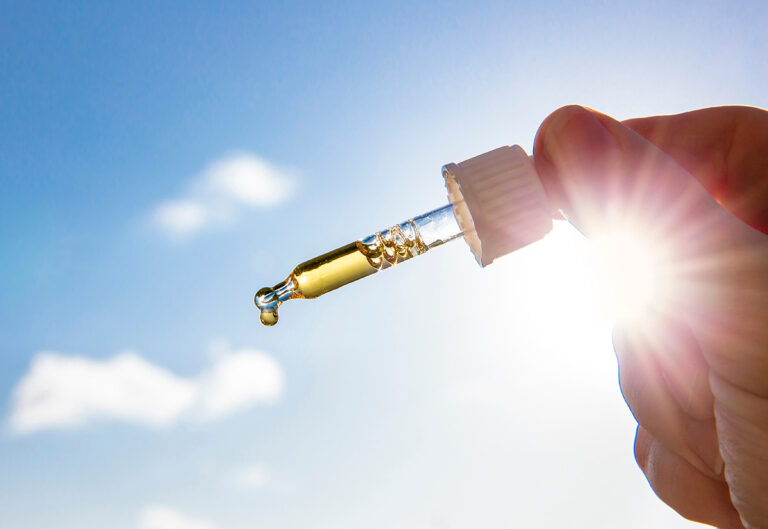
Prenatal multivitamins are a must
In a perfect world, we’d get all the nutrition we need from a healthy, whole-foods diet. And if you’re pregnant, nursing or planning on becoming pregnant, cleaning up your diet and focusing on nutrient-dense foods is essential.
But even the best diets have gaps—which is why Psota recommends a good prenatal multivitamin not just to pregnant women, but to any menstruating woman!
Practitioner insight
“Even if they’re not planning on getting pregnant, most women could use the extra iron and B vitamins that are depleted by oral contraceptives,” Psota says. “I think they’re a great insurance policy to make sure vitamin and mineral levels are adequate well before conception.”
At the very least, Psota recommends starting a prenatal multivitamin as soon as you start thinking about trying to conceive—and to keep taking it until you’re finished breastfeeding. After all, she says, “It’s a lot of work to build and then feed a baby!”
Research backs up Psota’s belief in the benefits of prenatal vitamins. Studies have shown prenatals may reduce preterm birth (1) and reduce the risk of autism spectrum disorder. (2)
How to choose the best prenatal multivitamin
So what makes a good prenatal multivitamin? Here’s what Psota says to look for:
- Choose capsules, not tablets. Even though you’ll have to take them more frequently, capsules are broken down more thoroughly in the body, making the vitamins easier to absorb.
- Look for the active forms of the B vitamins—MTHF and methyl B12.
- The included minerals should not be in “oxide” or “sodium” forms.
- The vitamins themselves shouldn’t contain artificial coloring, preservatives, or other nasty stuff. If they’re red or pink, they’re a no-go (why take unnecessary dye with your vitamins?). Keep an eye out for ascorbyl palmitate, corn starch, mineral oil, silicon dioxide, sodium lauryl sulfate, and other non-medicinal ingredients.
Individual prenatal vitamins and supplements every pregnant woman needs
While a good multivitamin will cover a lot of the bases, there are some specific vitamins and nutrients you should make sure you’re getting. You’ll find some of these in a high-quality prenatal vitamin. Others you’ll need to take as separate supplements.

Folate
Folate (which you’ll sometimes see in its synthetic form, folic acid), is one of the most frequently discussed prenatal supplements. And with good reason. Folate is essential for helping to prevent neural tube defects in babies. Neural tube defects can affect the baby’s spine and/or brain. According to the Centers for Disease Control and Prevention (CDC), all women of reproductive age should supplement with 400 mcg of folic acid daily. If you’ve already had a pregnancy that involved a neural tube defect, your needs are way higher—the CDC recommends 4,000 mcg per day. (3)Fish oil
If folate is the most talked-about prenatal supplement, prenatal omega-3 fish oil supplements are a close second. Psota recommends a total of 2,000-3,000 mg of an EPA/DHA combo per day, with 400-800 mg of that coming from DHA. “DHA not only helps with fetal brain and nervous system development but having enough DHA can really help to prevent ‘baby brain’ in mom,” Psota says. Studies have also found that omega-3 fish oils reduce the risks of preterm delivery and low birth weight. (4)Practitioner insight
With omega-3s, Psota prefers supplements to food sources. “I feel safer recommending high-quality supplements that are tested for heavy metals and pesticides rather than having women consume fish that are potentially high in mercury,” she says.
Iron
Iron needs are amped up during pregnancy. That’s because red blood cells need iron in order to deliver oxygen throughout the body. When you’re pregnant, your blood supply increases so you can get oxygen to the fetus too. The recommended daily allowance (RDA) for iron during pregnancy is 27 mg.Calcium
Calcium is essential for the fetus’s developing bones and teeth, especially during the first three months but extending all the way through breastfeeding. If you’re not getting enough calcium in your diet, your body will actually pull it from your own bones to feed your baby. How’s that for maternal sacrifice? Avoid risking your own bone health—and make sure your baby gets what she needs—by getting at least 1,000 mg daily. For optimal absorption, split that into two doses taken at different times during the day. (5)Vitamin D
Another nutrient that’s necessary for developing bones and teeth is vitamin D. Our skin produces vitamin D when exposed to sunlight, but to make sure you’re getting enough, you should also take a vitamin D supplement. Aim for 600 IU per day. (6)
Iodine
The body needs iodine to synthesize thyroid hormone. In pregnancy, you need more of it because that’s when thyroid hormone production increases. Low iodine intake in pregnancy can lead to problems with fetal brain development. (7) The RDA for iodine during pregnancy is 220 mcg per day. (8) Be careful of overdoing it on iodine, though. One study found that getting too much (over 500 mcg per day) can be bad for thyroid health as well. (9) Talk to your integrative health practitioner about how much iodine you’re getting in your diet to decide whether, and how much, you need to supplement.Choline
Choline doesn’t get as much attention as some of the other prenatal supplements mentioned here, but we’re likely to continue hearing more about it as more and more research emerges.Did you know? Several studies done in animals have found that choline is important for fetal brain development, and human studies are starting to back up animal research.In one, infants born to women taking 930 mg of choline per day had a better cognitive function at ages 4, 7, 10, and 13 months than babies whose mothers took 480 mg per day. (10)
Other recommendations for pregnant women
Psota recommends some other prenatal supplements on a case-by-case basis. For instance, she might suggest vitamin B6 for nausea or echinacea for an immune boost. But for overall health, the supplements listed above cover the bases. If you’re pregnant, breastfeeding, or trying to conceive, you have a tremendous opportunity to influence the health of your baby with proper nutrition and prenatal supplements. Be sure to work with your integrative practitioner to see that you’re meeting all your unique nutritional needs. Your baby’s health—and your own—can only benefit from optimal nutrition!- https://www.ncbi.nlm.nih.gov/pubmed/27209294
- https://jamanetwork.com/journals/jamapsychiatry/article-abstract/2726608
- https://www.cdc.gov/folic-acid/about/intake-and-sources.html
- https://academic.oup.com/aje/article/146/2/134/165151
- https://www.bones.nih.gov/health-info/bone/bone-health/pregnancy
- https://www.acog.org/Patients/FAQs/Nutrition-During-Pregnancy?IsMobileSet
- https://www.ncbi.nlm.nih.gov/pubmed/23706508/
- https://ods.od.nih.gov/factsheets/Iodine-HealthProfessional/
- https://www.ncbi.nlm.nih.gov/pmc/articles/PMC4590285/
- https://www.ncbi.nlm.nih.gov/pubmed/29217669



